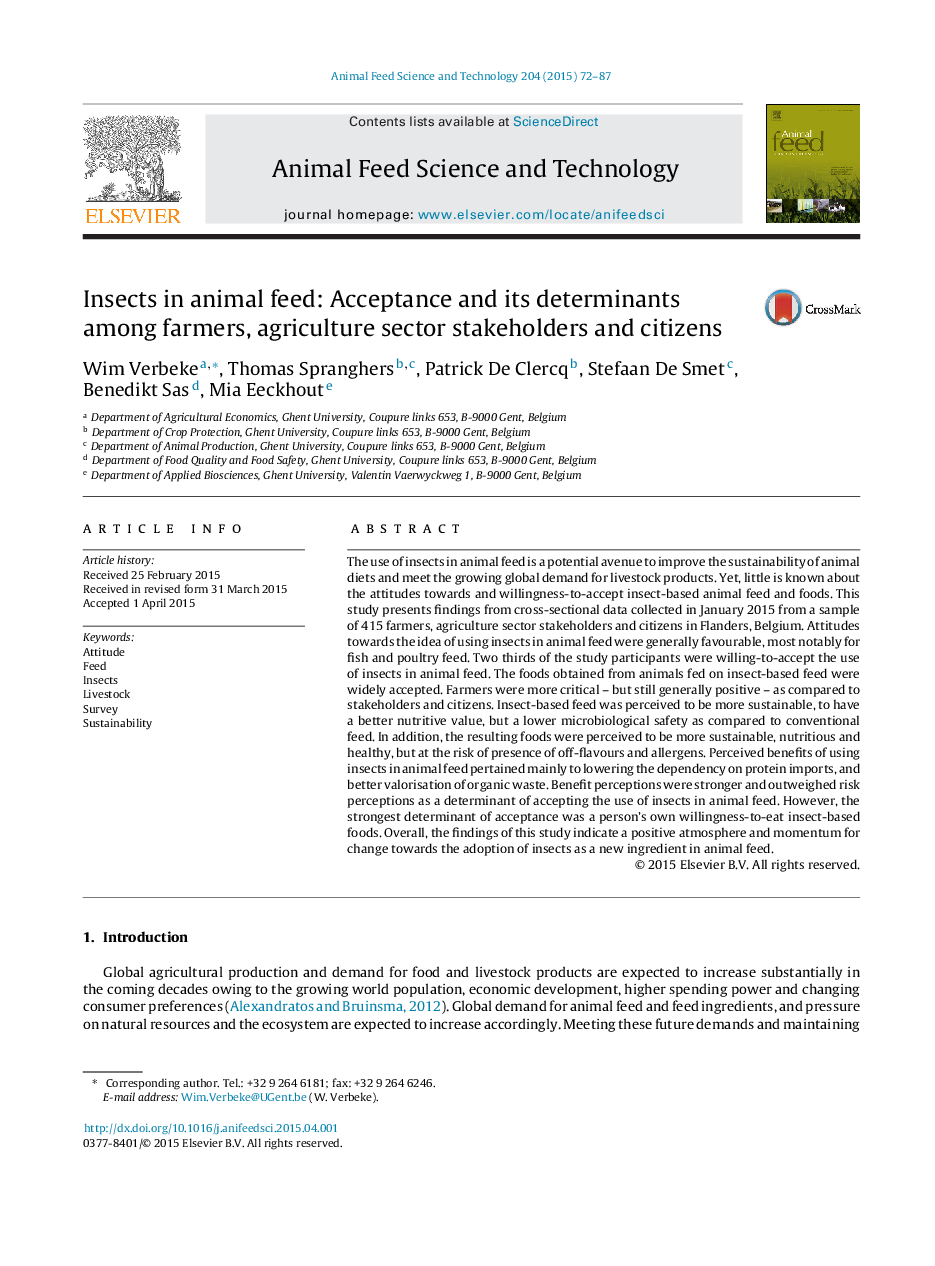| Article ID | Journal | Published Year | Pages | File Type |
|---|---|---|---|---|
| 2419475 | Animal Feed Science and Technology | 2015 | 16 Pages |
•Attitudes towards the use of insects in animal feed are generally favourable.•Two thirds of the study participants accept the idea of using insects in animal feed.•(Cattle) farmers (in particular) report more critical attitudes than stakeholders and citizens.•Perceived benefits outweigh perceived risks and concerns as determinants of acceptance.•Resulting foods are perceived as more sustainable but less easily marketable.
The use of insects in animal feed is a potential avenue to improve the sustainability of animal diets and meet the growing global demand for livestock products. Yet, little is known about the attitudes towards and willingness-to-accept insect-based animal feed and foods. This study presents findings from cross-sectional data collected in January 2015 from a sample of 415 farmers, agriculture sector stakeholders and citizens in Flanders, Belgium. Attitudes towards the idea of using insects in animal feed were generally favourable, most notably for fish and poultry feed. Two thirds of the study participants were willing-to-accept the use of insects in animal feed. The foods obtained from animals fed on insect-based feed were widely accepted. Farmers were more critical – but still generally positive – as compared to stakeholders and citizens. Insect-based feed was perceived to be more sustainable, to have a better nutritive value, but a lower microbiological safety as compared to conventional feed. In addition, the resulting foods were perceived to be more sustainable, nutritious and healthy, but at the risk of presence of off-flavours and allergens. Perceived benefits of using insects in animal feed pertained mainly to lowering the dependency on protein imports, and better valorisation of organic waste. Benefit perceptions were stronger and outweighed risk perceptions as a determinant of accepting the use of insects in animal feed. However, the strongest determinant of acceptance was a person's own willingness-to-eat insect-based foods. Overall, the findings of this study indicate a positive atmosphere and momentum for change towards the adoption of insects as a new ingredient in animal feed.
